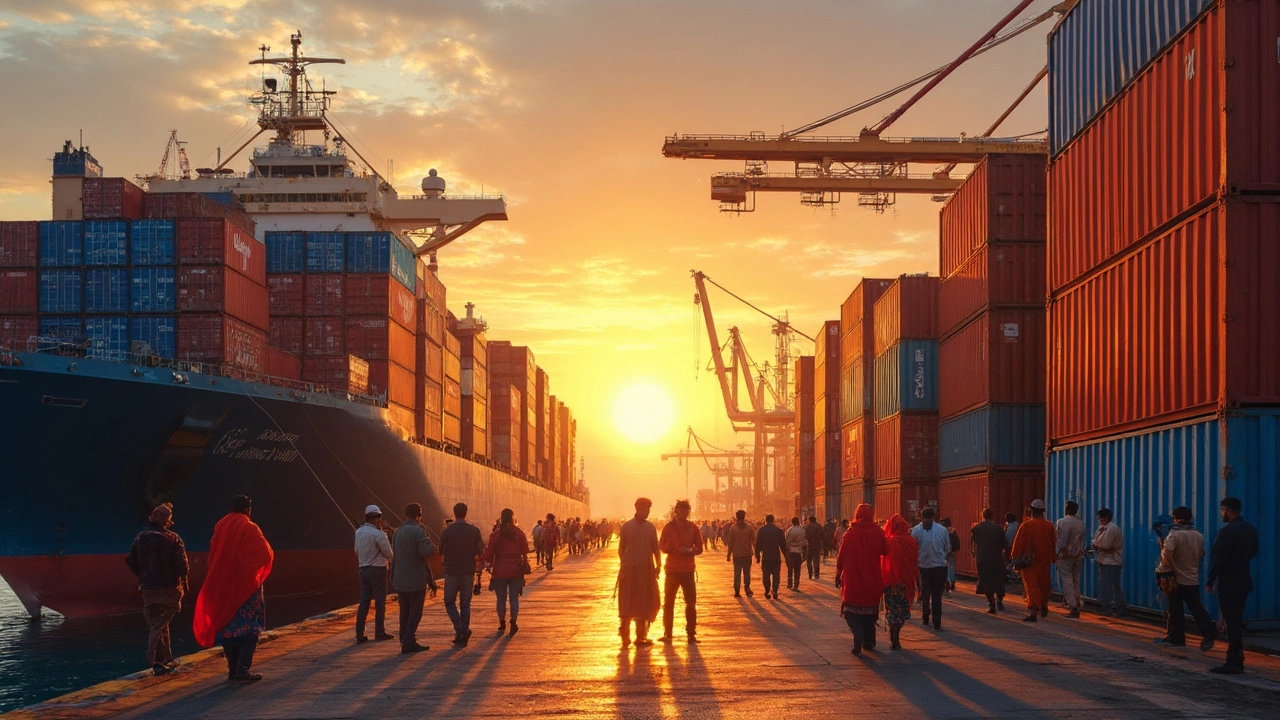What Does a Freight Forwarder Do? Explained in Simple Terms
Learn what a freight forwarder does, the services they provide, the step‑by‑step process, and how to choose the right partner for seamless international shipping.
Ever wondered how a bike gets from Chennai to Delhi without you having to call a dozen carriers? That’s a freight forwarder at work. They are the behind‑the‑scenes experts who bundle paperwork, pick the best routes, and make sure your cargo moves smoothly across borders.
A freight forwarder doesn’t own the trucks or ships. Instead, they act like a matchmaker between you and the carriers that actually move the goods. First, you tell them what you’re shipping – size, weight, destination, and any special handling needs. Then they compare rates, transit times, and reliability across multiple carriers. The result is a single quote that covers everything: freight cost, customs clearance, insurance, and door‑to‑door delivery.
Think of the process as a three‑step recipe. Step one is documentation. The forwarder prepares commercial invoices, packing lists, and customs forms so that your shipment doesn’t get stuck at the border. Step two is routing. Using their network, they choose the most efficient path – whether that’s a sea voyage, an air cargo flight, or a land truck run. Step three is tracking. Most forwarders give you a tracking number and real‑time updates, so you always know where your bike or pallet is.
Not all forwarders are created equal. Start by checking their experience with the type of cargo you have. If you’re moving motorcycles, look for a provider that knows how to secure bikes, handle customs for vehicle imports, and offers insurance for high‑value items. Ask about their price structure – some charge a flat fee, others add a markup on carrier rates. Transparent pricing helps you avoid surprise costs.
Next, test their communication. A good forwarder replies quickly, explains terms in plain language, and keeps you posted without you having to chase them. Finally, verify their licensing and insurance. In India, a valid NVOCC (Non‑Vehicle Operating Common Carrier) license is a good sign of legitimacy.
When you pick a freight forwarder, you’re not just hiring a logistics partner; you’re gaining a safety net. They handle customs duties, arrange for proper packaging, and can even manage returns if something goes wrong. That peace of mind is why businesses of all sizes rely on forwarders for everything from small parcels to full container loads.
So the next time you need to ship a bike, a pallet of goods, or any cargo across the globe, remember the three things a freight forwarder does for you: simplify paperwork, find the best route, and keep you informed. With the right partner, your shipment arrives on time, on budget, and in perfect condition. Ready to move your cargo? Start by asking a few forwarders for quotes, compare their services, and choose the one that feels most reliable. Your goods deserve that level of care.

Learn what a freight forwarder does, the services they provide, the step‑by‑step process, and how to choose the right partner for seamless international shipping.

Freight forwarders play a crucial role in international trade, handling logistics and ensuring goods reach their destinations efficiently. But who actually covers their fees? This article delves into the financial responsibilities surrounding freight forwarding, exploring who typically pays and under what circumstances. Discover interesting facts about the industry and practical tips on managing costs. Whether you're new to shipping or seeking to optimize your logistics budget, this read offers valuable insights.